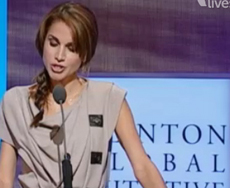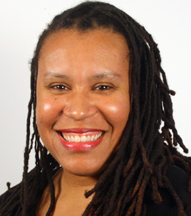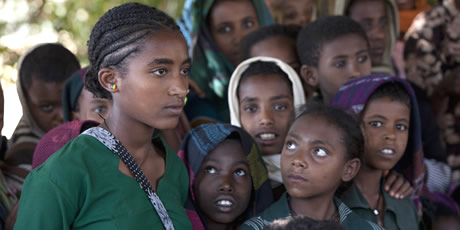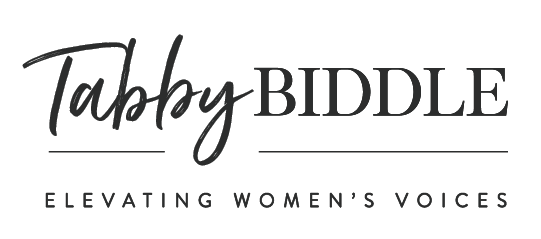Girl Up: Give a "High Five"
Written Tabby Biddle
Did you know that of all the illiterate adults in the world, two-thirds are women? This illiteracy of course is not because women are dumb, it is because many girls around the world are not given the opportunity to go to school.
Last week I spent three days glued to my computer, watching the live streaming of the Clinton Global Initiative Annual Meeting in New York City. As an advocate for the empowerment of women and girls, I was so excited and heartened to witness conversations about empowering women and girls getting center stage. While it can be hard to face the stories and statistics of the gender discrimination and violence happening every day toward girls and women, it was so uplifting to learn about the many good people, organizations, and campaigns working to change this.
One such campaign, which had its official launch this month, is called Girl Up. Started by the United Nations Foundation, Girl Up was created to channel the energy and compassion of American teen girls as a powerful force for change. As Girl Up global advocate Queen Rania of Jordan has said,
"Girl Up is about changing peer networking from sharing movies and music, to sharing missions and movements."

"Girls are born with a sense of opportunity, ambition, and spirit," said Queen Rania Al-Abdullah of Jordan at the 2010 Clinton Global Initiative Annual Meeting.
Girl Up has found a way for girls to participate for as little as five dollars, and make a big difference with just five minutes of their time. More on that later.
"I think one of the things most Americans don't know is that teen and tween girls in the United States are so uniquely positioned to heed this call," said director of Girl Up, Kimberly Perry, in an interview with me last week. While many people think of teenage girls as just interested in lip gloss, boys, movies and music, a study commissioned by the United Nations Foundation showed that 66 percent of girls have volunteered their time for a cause, and 80 percent have given money to cause. Add to this, of those girls who volunteered their time, nearly three-quarters made it a group effort, bringing along their friends and family."

Teen girls in the United States have a history with cause-related activities," says Kimberly, who for 17 years has been involved in advocacy work on behalf of the rights of children. "I think it's the perfect mix of ingredients for us to channel that energy, that enthusiasm, and experience of girls, and connect them to a really great cause that is just so relevant."
I had the pleasure of interviewing one of these enthusiastic and powerful Girl Up teens: Betsy Cribb. Betsy is a 17-year-old high school senior from South Carolina who has a passion for journalism.
"Journalism gives you such an outlet and platform for raising awareness about things that people may not be aware of," said Betsy in our interview.
“For example, CGI was a small audience when you look at the entire world. However, because they streamed it live online and because there were journalists covering it, we were able to share the messages that a small audience in New York was hearing with the entire world."
Betsy was invited by the United Nations Foundation to be the sole Girl Up Teen Correspondent covering Clinton Global Initiative (CGI) sessions related to empowering girls and women in the global community."It is absolutely crazy to me that I am here! Until now, plans for the trip have all just been words on a page, but now I'm actually here with the Girl Up team (and my mom!), and it is overwhelmingly exhilarating," wrote Betsy in her first blog on the job.

In her role as Girl Up correspondent, Betsy got to meet and interview some powerful and inspiring women. Some of these fabulous women included: Melanne Verveer, U.S. Ambassador-at-Large for Global Women's Issues; Maria Eitel, CEO of Nike Foundation; Dr. Helene Gayle, President and CEO of CARE; and Geraldine Sealy, Editor at Glamour Magazine.When I asked Betsy about what message she wants to impart to other young women around the United States, she told me:
"I think we all need to really understand how lucky we are. As a girl in the United States, you can start out from nothing, but if you work hard you can get wherever you want to go. But these girls in developing countries can work hard all day long and can do everything they can to move up in status or in the job world, but they can't move anywhere. They have no social mobility no matter how hard they work. I think it's important for us as American girls... to understand that we should be helping those who don't have the same opportunities that we do."

Sesuagno Mola's life began like many girls in her community in the rural Amhara region of Ethiopia. Married at age five, Sesuagno left her family's home at a young age. She was not allowed to attend school and had her first child at age 14. Close to half of all Amharan girls are married before their 15th birthday. Her life changed when a Girl Up-funded program came to town.
There are 600 million adolescent girls in the developing world that are bright, talented, and full of dreams, but unfortunately are often forgotten and ignored. In fact, girls make up 70 percent of the world's out-of-school youth, according to the United Nations Foundation. These girls are not in school through fault of their own, but instead because of gender discrimination and poverty.
In an interview with Matt Lauer last week on the Today Show, Queen Rania made the point: "I really feel that when you give girls the smallest chances, they can make the biggest changes."
Amen Queen Rania. (Actually Awomen is more appropriate in this case.)
In order to raise awareness and funds for programs to provide girls in developing countries with such basic needs as access to clean water, life-saving health services, safety from violence, and resources to help them enter and stay in school, supporters of Girl Up are encouraged to give a "High Five."
This means taking five minutes to do one of the following things:
Learn about the issues impacting girls in developing countries.
Share five facts about girls and the campaign through online social networks.
Send the Girl Up Campaign's Girlafesto to five friends and family members.
Donate five dollars or more to provide school supplies, health check-ups, clean water, and more.
Host a Girl Up fundraiser in your school, club, or community to raise funds for the campaign by challenging five friends to see who can raise the most funds for girls.
While number five will take more than five minutes, the point is that five minutes of a girl's time in the United States can have a huge impact on her peer's entire future.
As Betsy said in her closing blog:
"We, as American girls, are the world's golden girls. We have equal rights, boundless opportunities, and bright futures. We have fathers and brothers that realize our unlimited potential; we have uncles and guy friends that value us. We have the ability to advocate for our friends in developing countries. We have voices that will be heard. We have the power to change the world." We have the power to Girl Up."
Looks like channeling the compassion, energy, and experience of American teen girls to help improve the lives of some of the hardest to reach girls in developing countries is a GREAT idea.
To give a "High Five" and get involved with Girl Up, please visit www.GirlUp.org
Please note: Although Girl Up is a campaign for girls run by girls, everybody is invited and encouraged to participate. Through your support of Girl Up, more girls will be healthy, educated, and safe. From there, these girls will be in the position to be the next generation of leaders.
Girl Up events coming right up:
Thursday, September 30: Girl Up Pep Rally in NYC
Sunday, October 3: Girlafesto Gathering in NYC
Tabby Biddle, M.S. Ed., is a writer/editor dedicated to the empowerment of women and girls. Her work has been featured by The Huffington Post, The Los Angeles Times, USA Today, NPR, and other popular media. She lives in Santa Monica, CA with her husband. Learn more at tabbybiddle.com

